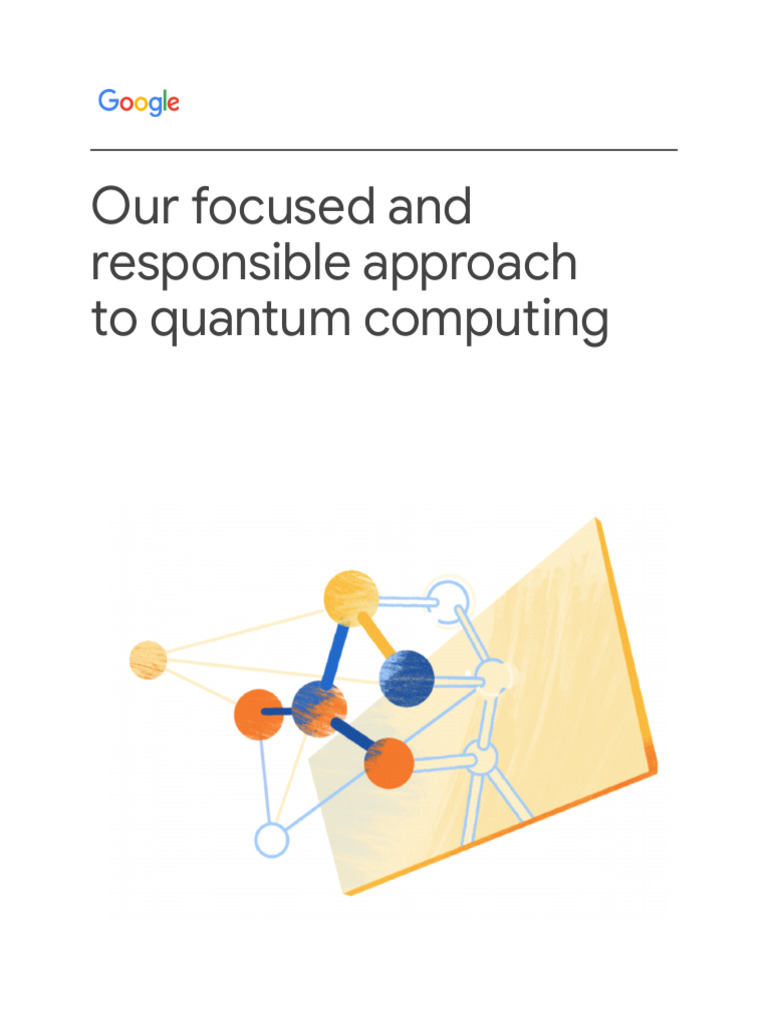Quantum computing, once relegated to the realm of theoretical speculation, has now burst onto the technological stage, spearheaded by industry giants like Google. With the advent of Google’s Quantum AI, an era of unprecedented computational capabilities looms on the horizon. Could this herald a new age of technological prowess, or does it invite a slew of challenges yet to be addressed?
The intricacies of quantum mechanics underpin this groundbreaking technology. At the heart of Google’s Quantum AI initiative is the principle of superposition, which allows quantum bits, or qubits, to exist in multiple states simultaneously. Unlike classical bits that resolve to either zero or one, qubits leverage quantum phenomena to perform complex calculations at an exponentially faster rate. This introduces an intriguing query: What problems, deemed insurmountable by classical computers, might Google’s Quantum AI unravel?
A prominent milestone achieved by Google is their demonstration of “quantum supremacy.” This event, which occurred in 2019, showcased a quantum computer that completed a specific task faster than the world’s most advanced classical supercomputer. Such accomplishments propel forward the discussions surrounding the potential applications of quantum technology. For instance, can quantum computing revolutionize cryptography, creating codes that have previously deemed impregnable?
As the promise of quantum computing expands, so too does its applicability in a myriad of fields. In pharmaceuticals, the ability of Quantum AI to simulate molecular interactions could drastically accelerate drug discovery. Traditional methods often grapple with exponentially complex equations when simulating just a handful of molecules, a task at which quantum systems excel. This raises an exhilarating question: Could we witness breakthroughs in curing diseases that have long defied conventional medical practices?
Moreover, Google’s Quantum AI seeks to capitalize on optimization problems that vex traditional computation. Supply chain logistics, for instance, involves a staggering number of variables. With quantum models, companies could potentially optimize routes dynamically, cutting costs and refining efficiency. However, one must ponder: What ethical implications arise when automating decision-making processes in critical economic sectors?
Nevertheless, the road to full-scale quantum computing remains fraught with challenges. The phenomenon known as quantum decoherence poses a significant barrier, as qubits are exceptionally sensitive to environmental disturbances. This fragility necessitates a stark reliance on error correction, introducing layers of complexity within quantum algorithms. How might researchers balance the delicate nature of qubit states with the demands of computational reliability?
In addition to technical hurdles, the regulatory landscape for quantum technologies remains largely uncharted. Governments and institutions must grapple with defining frameworks that will ensure the ethical use of such potent innovations. The question surfaces: How will states navigate the competitive nature of quantum technologies while safeguarding against monopolistic practices that could arise from overwhelming capabilities?
The potential impact of quantum computing on artificial intelligence also warrants consideration. Google’s Quantum AI could fundamentally transform machine learning paradigms, enabling models that process information in ways previously inconceivable. This leads us to a thought-provoking inquiry: If machines powered by quantum computing can learn at an accelerated pace, what new ethical dilemmas emerge as these entities become more autonomous?
Looking beyond the immediate implications, the global competitive landscape shapes a critical discourse surrounding quantum advancements. Nations around the world are racing to invest in quantum research and development. Such competition underscores the geopolitical stakes involved: dominance in quantum computing could redefine power structures in the digital age. What are the international ramifications when nations vie for supremacy in a field that holds such transformative potential?
While the discourse surrounding the implications of Google’s Quantum AI is rich and multifaceted, recognizing the essentiality of collaboration remains paramount. Academic institutions, governmental bodies, and private enterprises must unite to foster an environment conducive to responsible progress. This necessitates the establishment of interdisciplinary programs that not only advance quantum technologies but also address the ethical and societal dimensions entwined therein.
As we navigate the tantalizing prospect of quantum computing, it is vital to maintain an ongoing dialogue about its implications. The convergence of innovation and ethics presents a formidable challenge. Engaging a diverse group of stakeholders will facilitate a more comprehensive understanding of the landscape, ensuring that advancements in quantum AI benefit society holistically. What steps will be taken to mitigate risks while harnessing the transformative potential of quantum technologies?
In summary, the latest developments surrounding Google’s Quantum AI illustrate an exhilarating confluence of promise and challenge. As quantum computing continues to evolve, it poses both profound opportunities for innovation and critical inquiries into our readiness to embrace such powerful tools. The future remains uncertain; however, by fostering a culture of collaboration and ethical responsibility, society may harness the benefits of this quantum revolution while mitigating potential pitfalls.












